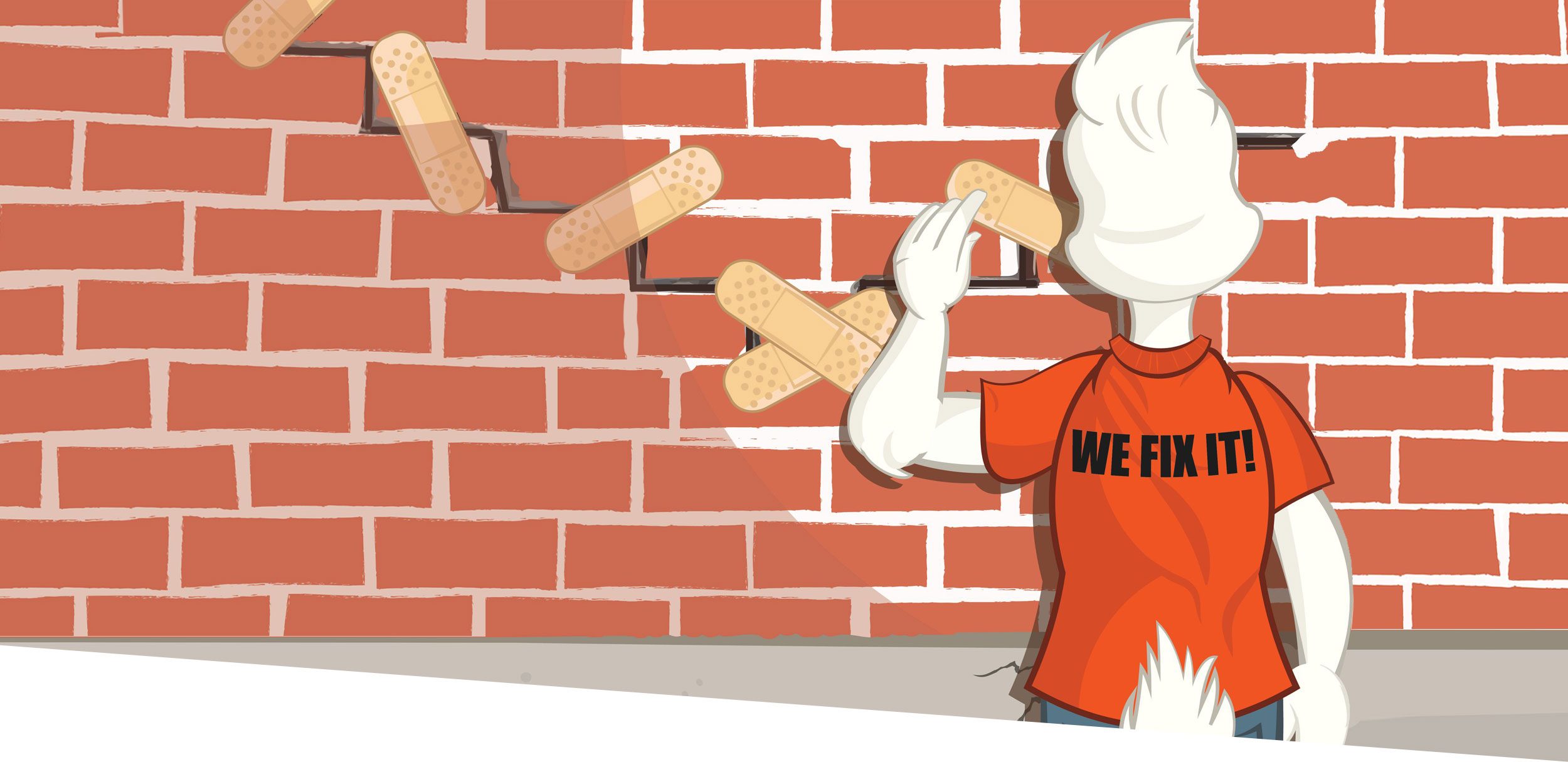Foundation settlement is a fact of life for many Alabama homeowners. Although the loamy soil that covers a large part of our state is generally good for foundation support, no home is one hundred percent immune from foundation settlement. It’s a natural occurrence even for the best designed and built structures.
Here’s why. Loamy soil is usually a mix of clay, silt and sand in proportions that vary depending on where you live. The reason loam is better than average for foundation support is that it tolerates seasonal moisture changes without a lot of differential movement. Civil engineers describe this differential movement as ground action that causes soil to either drop away from your foundation or place added pressure on more sensitive parts of the structure.
7 common signs of foundation settlement
For a variety of reasons we’ll cover in just a bit, even the most stable and weather tolerant soil can gradually erode, recede, shift or sink. When this happens, parts of your foundation can be left unsupported, causing slabs, footings, basements or crawl spaces to sink, buckle or tilt. Foundation settlement can happen gradually or suddenly, depending on the severity of differential movement, but in either case, it presents similar telltale signs:
- Doors and windows that used to move freely start to stick.
- Mineral blooms or deposits begin to appear on basement or crawlspace surfaces.
- Floors that were once level start to sag or give you a “downhill” feeling.
- New cracks appear in ceilings or drywall, especially where surfaces meet.
- Exterior masonry begins to show stairstep or zigzag cracks that get bigger over time.
- Exterior slabs or walkways start to crack, sag or separate.
- Basement or crawlspace walls begin to buckle or appear out of plumb.
If you notice one or more of these 7 common signs of foundation settlement, don’t be in a rush to assume the worst, but don’t ignore them either. Some settlement is a normal occurrence in just about every residential property, and may only cause light cosmetic damage that’s inexpensive to repair. A reputable inspector will give you the straight story on what you can take care of yourself and what needs professional attention. What you want to watch out for and take quick action on are persistent foundation settlement issues.
7 contributing factors that can lead to foundation settlement problems
Left to themselves, even minor settlement problems are likely to get worse over time. If you’re handy and like home improvement projects, you can correct some issues as a DIY enthusiast.
Here are 7 foundation settlement causes to watch out for:
- Excess water pooling around the outside of your home.
- Moisture accumulation or musty, moldy odors in your basement or crawl space.
- Faulty gutters or downspouts that don’t drain water away from your foundation.
- Poor grading, especially due to incomplete or incorrect building practices.
- Flooding events that displace soil around your property.
- Higher than average rainfall that causes a sudden increase in groundwater.
- Extended droughts that cause a sudden decrease in groundwater.
If any of these conditions persist around your property, whether it’s residential or commercial, it’s a good idea to have a trained inspector check for foundation settlement. For single family homes, the inspection is usually free, and an established, trustworthy company will often give you DIY recommendations and a complete rundown of repair options that fit your budget.
Here are just a few of the things you can do on your own to protect your foundation:
- Do a little fine grading with a few bags of extra top soil to ensure water drains away from your foundation.
- Inspect and replace faulty sections of gutter and install downspout extensions to direct water away from your house.
- Check your basement or crawl space for water leaks and apply caulking around all wall penetrations.
- Do an annual plumbing check to make sure no water is leaking around your foundation.
- Dig french drains (small gravel-filled trenches) around areas where standing water might accumulate on your property.
Things to know before you commit to foundation settlement repairs
You might be surprised to learn how affordable it can be to restore a settled or sagging foundation. In many cases, the issue can be corrected on a spot basis to stabilize your home and bring it back into alignment. Helical pier technology is cost effective, reliable and requires far less excavation than old-school driven piles or cast-in-place supports.
Helical piers (also known as “screw piles”) such as the ones installed by SouthernDry take up minimal space, are virtually indestructible, and retain their alignment and foundation supporting strength due to the circular bearing plates welded along their length. These bearing plates safely and securely distribute foundation loads evenly across stable soil. They’re fast and simple to install and cause minimal disruption to your property.
If you notice signs of foundation settlement around your property, consider contacting a reputable and knowledgeable foundation repair company like SouthernDry. We don’t do high pressure sales. We’ll help you identify the problem and educate you on the most cost effective solution to correct it. SouthernDry technicians treat you like they want to be treated. It’s common to get a few quotes from other contractors, but we urge you to have us out and talk to us before you make a final decision. We want to earn your business and provide you with a great experience.
We offer free inspections and estimates to homeowners and businesses in Birmingham, Hoover, Pell City, Bessemer, Anniston, Jacksonville, Cullman, Gadsden, Albertville, Jasper, Talladega, Tuscaloosa, Oxford, Montgomery, and the surrounding areas. Complete a contact request form or call us today!









